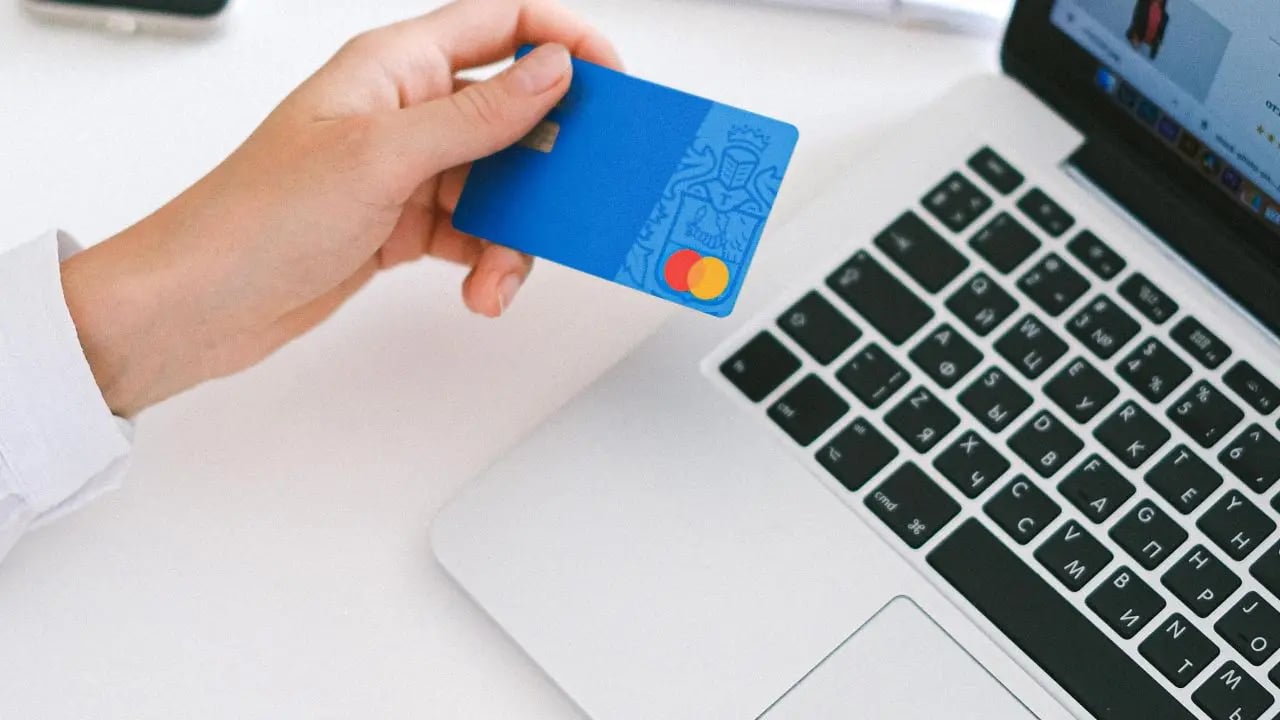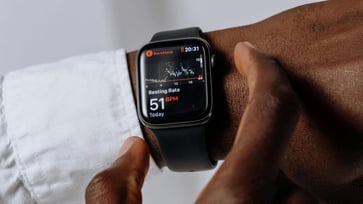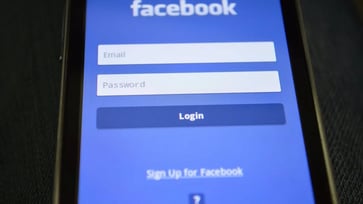Your privacy may come at a cost during Black Friday's cheap deals.
Beware of Black Friday deals that compromise your privacy

This is the ideal moment to purchase holiday presents for your loved ones and indulge in the expensive watch you wouldn't usually buy.
The anticipation, discounts, and shopping frenzy surrounding Black Friday have made it a global cultural and economic phenomenon. Lasting the entire month, this event is a huge success. However, it's important not to let the excitement cloud your judgment.
The deals are enticing, but there are dangers lurking beneath the surface.

The devil’s in the privacy policy
With every online purchase, we willingly surrender personal data such as our email address, name, and address to create an account or receive a delivery. However, it is crucial that this information is used solely for these specific purposes.
When you agree to the fine print linked under "Privacy Policy" at checkout, you may unknowingly consent to your personal data being shared with an unspecified number of third parties. Retailers often sell personal information and purchase histories to third parties, such as marketing companies and data brokers, who use it to construct detailed consumer profiles. Once your information is out there, it can be challenging to remove it from these third-party databases.
It is common for people to become distracted by marketing strategies during Black Friday, which can lead to impulsive buying decisions.

The spam and scam aftershock, a post-Black Friday hiccup
In the 1950s, Philadelphia police officers came up with the term "Black Friday" to describe the mayhem that occurred on the day after Thanksgiving, as throngs of shoppers and tourists overwhelmed the city.
During Black Friday, your inbox and phone may be overwhelmed with spam messages from various sources.
First, from the online shops where you've provided your email and phone number. Second, from all the companies that have your consumer profile, the ones that are (or are not) mentioned in their privacy policy. Third, from all the retailers you've purchased from in the past, including that one-time purchase of a kettlebell set three years ago (that you'd rather forget).
Black Friday is not only a shopping frenzy but also a prime opportunity for hackers to launch social engineering attacks. The excitement of Black Friday deals can make you more susceptible to clicking on links or opening attachments without verifying their authenticity. You may unknowingly fall prey to a phishing email posing as a retailer, putting your personal information at risk. As you read this article, your data is being collected, shared, and sold without your knowledge.

How to buy without being sold at the same time
It's not practical to read privacy policies every time you make a purchase. If you're proactive, use the search function (Ctrl+F or Command+F) to quickly locate sections where you can limit data sharing. However, keep in mind that these options may not be available in all regions.
Instead of using a permanent email address for online purchases, it is recommended to create a disposable email address specifically for this purpose. After receiving the order confirmation, you can deactivate the email to prevent any further communication. Additionally, you can utilize privacy-focused software or browsers that block tracking cookies and safeguard your data from being collected by companies.

8 tips to safeguard your email after Black Friday
To safeguard your email and personal information from spam and scams after the shopping rush, follow these eight crucial tips.
An email alias address is a secondary email address that forwards emails to the primary email address. It can be used to manage spam mail by deleting the alias address. Check out my review of the best secure and private email services here.
Utilize a password manager to generate and frequently update complex passwords.
Be cautious when clicking on links or replying to emails from unknown sources, as scammers or hackers can pose as legitimate organizations or individuals to trick you into providing personal information or clicking on malicious links. To verify the sender's identity, check the email header for their actual email address.
Installing antivirus software on all your devices is the best way to safeguard your data from being breached. With antivirus software actively running, you will receive alerts about any malware in your system, be cautioned against clicking on suspicious links in phishing emails, and ultimately be protected from being hacked.
Malicious links can appear as legitimate ones, but they can harm your device by downloading malware. Malware can damage your device, steal personal information, or give hackers access to your data. Hackers can use your data for identity theft, fraud, or blackmail. It is crucial to have antivirus software that can detect and remove malware before it causes any harm. Discover my top picks for the best 2024 antivirus protection for your Windows, Mac, Android, and iOS devices.
To safeguard your account, avoid clicking on links in emails or responding to them and instead visit the official site of your financial institution directly to check for any changes or charges. This way, you can prevent falling for phishing scams.
Create no more than one account or profile using your personal email address.
To safeguard your email from spammers, regularly remove your personal information from the internet. While no service can guarantee complete removal, a removal service can automate the process and help you monitor your data across multiple sites over time. Discover my top picks for data removal services here.
A VPN service can improve your privacy by encrypting your internet traffic, making it more difficult for hackers and third parties to intercept your data, particularly when using public Wi-Fi. By using a VPN, your IP address is concealed, which helps to obscure your location and online activity. Although VPNs do not prevent phishing emails, they reduce the exposure of your browsing habits to trackers that may use this data for malicious purposes. With a VPN, you can securely access your email accounts from anywhere, even in areas with restrictive internet policies. Check out my expert review of the top VPNs for secure browsing on your Windows, Mac, Android, and iOS devices.
I've been scammed! What to do next?
If a scammer obtains your email address, they can utilize it to gain access to your other accounts, send fraudulent emails to deceive you into disclosing your passwords or personal information, or even impersonate you to commit fraud or other crimes. Therefore, it is crucial to safeguard your email address and take prompt action if you suspect it has been compromised. The following are some steps to take if you or someone you know becomes a victim of identity theft.
Inform the account provider and change your passwords if you regain control of your accounts.
Examine bank statements and checking account transactions to trace the origin of unusual spending.
To safeguard your personal information both online and offline, consider using identity theft protection services. These companies can monitor your home title, SSN, phone number, and email address, and notify you if they detect any suspicious activity. Additionally, they can assist you in freezing your bank and credit card accounts to prevent any further unauthorized use by criminals.
Using identity theft protection services can provide you with up to $1 million in identity theft insurance to cover losses and legal fees, as well as a white-glove fraud resolution team with a U.S.-based case manager to help you recover any losses. Check out my tips and best picks for protecting yourself from identity theft.
Notify the Federal Communications Commission of any breaches.
It is advisable to seek legal counsel before communicating with law enforcement when dealing with criminal identity theft, particularly if it has resulted in employment or housing difficulties.
Notify the three primary credit reporting agencies and potentially add a fraud warning to your credit history.
You can perform your own background check or obtain a copy of one if you found out that your information has been misused by a criminal.
The most crucial step to take if you are a victim of identity theft is to act promptly to minimize the damage and prevent any additional harm.
Kurt's key takeaways
Online shopping during Black Friday can be both exciting and overwhelming, with discounts tempting but also putting your personal data at risk. To protect your privacy while still taking advantage of online shopping, consider using tools to safeguard your information. Additionally, be mindful of the potential spam and unwanted communications that may come after Black Friday, and take proactive steps now to avoid future headaches.
Have you ever encountered a data breach or privacy issue while shopping online? If so, how did you handle it? Please share your experience with us by writing to Cyberguy.com/Contact.
To receive more of my tech tips and security alerts, subscribe to my free CyberGuy Report Newsletter by visiting Cyberguy.com/Newsletter.
Let us know what stories you'd like us to cover.
Follow Kurt on his social channels:
Answers to the most-asked CyberGuy questions:
New from Kurt:
Copyright 2024 CyberGuy.com. All rights reserved.



















